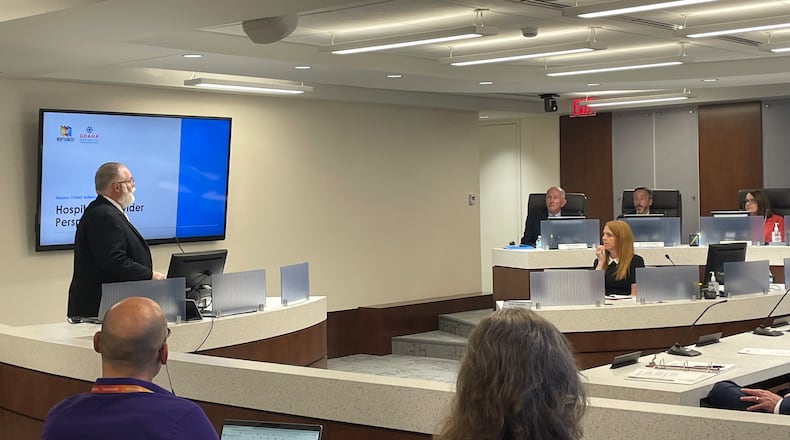The commission formed the task force in January in partnership with the Greater Dayton Area Hospital Association (GDAHA). The task force has been meeting monthly.
Behavioral health is linked to mental health, but encompasses how everyday reactions, lifestyles, habits and more impact both physical and mental well-being.
“Our county has been through so much in the past few years,” said commission president Debbie Lieberman. “In addition to the challenges of the COVID-19 pandemic, we’ve experienced the Memorial Day tornadoes, Oregon District mass shooting and other events that have contributed to increased need for behavioral health services.”
Since 2019, hospitals in Montgomery County have seen a 26% increase in patient encounters for behavioral health needs in area emergency departments, with an additional 8.6% increase in patient encounters for substance use disorder, according to the task force’s report.
In addition, nearly 20% of patients who receive care at an emergency department for behavioral health needs or substance use disorder are treated two or more times.
GDAHA president and CEO Sarah Hackenbracht said on Tuesday that the closure of Twin Valley Behavioral Health — the region’s psychiatric facility — by the state 15 years ago has had a reverberating impact on the community’s access to care.
“Upon that closure, our region was given assurances that our patients would be able to be transferred to facilities in Toledo, Columbus and Cincinnati,” she said. “That process has never worked smoothly to serve the needs of our region or the individuals in our care. And our community members are paying that price.”
She called the system to transfer patients to state psychiatric care “broken,” noting the task force learned that local organizations are no longer documenting failed attempts to transfer patients to state facilities.
“Our region deserves better,” she said.
Limited resources and crowded emergency departments have escalated hospital incidents, causing violence and unsafe interactions for clinicians and non-clinical staff, the task force found.
Behavioral health providers also struggle with high demand for services, leading to long waitlists for treatment while reimbursement rates fail to cover the cost of treatment, according to the report.
Behavioral health services are also needed at Montgomery County Jail. Police officers are frequently the first responders to mental health emergencies. Limited training and resources for handling these situations can lead to escalating conflict and harm to individuals, according to the report.
Those with mental health issues are overrepresented in the criminal justice system. For inmates with underlying mental health issues, county jails have often become the de facto treatment center, and limited physical and behavioral health resources have complicated individuals’ recovery and ability to succeed upon release, the task force found.
Task force members identified the need to engage frontline staff to help shape recommendations for the future of care in Montgomery County. More than 300 surveys from the task force were received from employees in hospitals, behavioral health providers, courts, law enforcement, the jail and regional dispatch; 77% of the respondents agreed the system needed improvement, according to the report.
The group also recommends a workforce supply and demand study.
The task force pointed to the need for increased funding and support for local psychiatric residency programs, citing the increased demand and the oncoming retirement of the current provider population.
Along with forming a multi-agency monitoring body, the task force also recommended quarterly reviews of county-level data to quickly address gaps that affect services and the need for strategic planning.
The full Behavioral Health Task Force report is available on the county’s website.
About the Author

